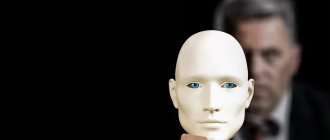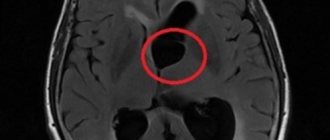Who is an antisocial person
An antisocial person is one who deliberately violates the moral rules and norms established in society. The actions of such an individual are focused on satisfying their needs. A synonym for antisocial behavior is the social indifference of a citizen, therefore, in a person of an asocial type, the motivation to interact with others is reduced or absent altogether.
According to politicians, asocial people lag behind in social development and cannot achieve success in one area or another. However, if necessary, he behaves like a socialized citizen (if there is any benefit for him in such behavior).
Asociality cannot be equated with crime, since there is no criminal element in the behavior of asocial people. Such people can be compared to maladjustments, since they want to isolate themselves from society, and this explains their peculiar associative behavior.
Recommendations from psychologists
Knowledge about what an antisocial person is and the corresponding signs in behavior will help in raising a healthy child. Psychologists advise adhering to five rules in raising a healthy personality:
- Open communication. The child's problems should be discussed at home and resolved calmly. Children need to be assured of support and understanding.
- Well-deserved praise. Encouragement must be deserved, otherwise selfishness develops, and in the future - problems with social adaptation and the formation of deviations.
- A positive example. The atmosphere at home, the love of spouses and respect develop children's adequate self-esteem, on which behavior in society depends.
- Correction. You need to calmly explain to your child what and why is unacceptable: habits, actions and character traits.
- Joint activities. Even the busiest parents should make time for family fun, relaxation, and celebrations.
Characteristics of an antisocial personality
The antisocial image consists of the following characteristics:
- low level of responsibility;
- low moral level, antisocial behavior;
- poor development of the emotional-volitional sphere, emotional callousness;
- poor development of voluntary attention;
- difficulties in verbalizing your feelings and experiences;
- lack of conscience;
- selfishness;
- pathological self-esteem (low or high);
- tendency to use manipulation in communication;
- tendency to lie;
- aggressiveness, conflict;
- impulsiveness;
- frequent mood changes for no apparent reason;
- charisma;
- hypocrisy;
- isolation;
- sociopathy;
- eating disorder;
- insomnia;
- the desire to engage in some type of activity alone;
- social contacts of a person are reduced to a minimum;
- the circle of friends of a person leading an antisocial lifestyle is very narrow;
- lack of desire to make a pleasant impression on one or another group of people;
- a tendency to communicate with people who have deviations from the norm (drug addicts, alcoholics).
Social circle of an antisocial
An antisocial person cannot be considered an antisocial subject, because he does not set a goal to cause harm to others.
Antisocial and deviant behavior
These words have a lot in common. However, the second concept usually refers to actions that cause harm to others. These include delinquency (delinquent behavior) and crime. The first manifests itself in the form of arson, fights, insults and theft. The second is associated with more serious actions, as a result of which a person can end up in the dock.
According to statistics, such actions are most common among males aged 14 to 29 years. Antisocial delinquent behavior is a pathology that is formed under the influence of social disasters, family dysfunction, low levels of income, and ignoring the problems that arise among the younger generation.
Manifestations of asociality
Signs of asociality can appear at different times. Most often, examples of such behavior occur in adolescence, but sometimes an antisocial personality manifests itself already in childhood. Also, antisocial phenomena can be a consequence of certain changes in the life of an adult.
In childhood
The following are considered antisocial manifestations in childhood:
- child's aggressiveness and irritability;
- the child's tendency to throw tantrums;
- deviations in behavior, the desire to resist the demands of adults and society;
- the child’s tendency to deceive peers and parents;
- decreased cognitive interest and learning motivation;
- lack of friends and desire to communicate;
- conflict, rudeness in communication, pugnacity;
- running away from home, vagrancy, communication of a child with criminal groups;
- tendency to steal;
- tendency to blackmail and manipulation;
- sadistic tendencies;
- animal abuse.
To prevent negative signs from developing into an antisocial lifestyle, psychological and pedagogical correction must begin already in preschool and primary school age.
Antisocial girl
During adolescence
In adolescent psychology, signs of antisocial behavior are more widely represented than at any other age. This:
- low socio-psychological status of a teenager in a group of peers;
- poor development of communication skills;
- belonging to certain subcultures;
- musical fanaticism;
- love of risk, committing rash acts;
- lack of trust and sincerity in communication with parents;
- conflictual communication with relatives, defending one’s interests in a rude manner;
- disregard for parental authority;
- refusal to perform a minimum set of household responsibilities;
- poor development of cognitive interest and educational motivation, absenteeism from school;
- interaction with criminal authorities and antisocial associations;
- committing illegal acts (petty hooliganism, theft, robbery, violent acts);
- auto-aggression, self-harming behavior (a teenager tries to cope with emotional experiences through physical pain);
- suicide attempts;
- feeling of impunity;
- vagrancy, homelessness;
- promiscuous sexual contacts, tendency to sexual perversions;
- conformism.
In adults
In adults, antisocial elements in behavior manifest themselves as follows:
- selfishness;
- the desire for self-realization and self-affirmation at the expense of other people;
- lack of ability to experience shame and guilt;
- lack of order in life (frequent moving, lack of emotional attachments to loved ones, changing jobs and areas of work);
- refusal of marriage and procreation;
- waiver of alimony obligations and timely repayment of loan debts;
- lack of motivation to work, refusal of employment or poor performance of one’s job duties;
- habit of being late;
- disrespectful attitude towards others, aggressiveness, conflict;
- ignoring the moral principles of society, immoral behavior;
Antisocial attitude towards successful people
- committing minor illegal acts;
- the associative nature of the experience of emotions (joy and grief are expressed equally).
Psychiatrists' opinion
There are many circumstances that contribute to the development of deviation. Experts say that it may be associated with biological reasons, characteristics of upbringing, or a certain way of thinking. There are two concepts - antisocial behavior and antisocial. How are they different? Many scientists associate these phenomena with the presence of mental disorders. Psychiatrists distinguish two types of individuals with such deviations. According to this point of view, antisocial individuals include:
- People who have isolated themselves from society. They have a special inner world. There is almost no contact with others. The experiences of such individuals, their emotions, attachments are not manifested externally and are unknown to others. The isolation of such individuals does not cause them suffering. Low-income people with this disorder become vagabonds. The rich are gaining a reputation as eccentric eccentrics.
- Persons who are unable to establish contacts with others. They cannot function normally in society and experience great suffering as a result. Such an individual perceives any interaction as torture. Therefore, he tries with all his might to hide from others. Others notice oddities in a person’s behavior (excessive shyness, unceremoniousness, ridiculous actions) and also instinctively avoid communication. As a result, the antisocial personality is deprived of friendship and romantic relationships. Such people are forced to spend a lot of time at home and not go anywhere. They worry about being unable to realize themselves at work or start a family.
These personality types do not have a negative impact on society.
According to psychiatrists, cases of antisocial behavior are characterized by a negative impact on others. Such manifestations include delinquency and criminal behavior. Experts explain such deviations as the development of a serious mental illness.
Types of antisocial behavior
Psychologists offer a classification of antisocial behavior based on the severity of deviations from the norm:
- Introversion is a mild form of asociality, which is based on a weakly expressed need for communication. Such people are burdened by the company of people and love to be alone with themselves. However, this personality trait does not have a negative impact on their attitude towards work. They try not to violate social norms and rules.
- Immoral behavior, which boils down to ignoring the moral principles of society. This type includes parasitism, prostitution, foul language, begging, and vagrancy.
- Various addictions are dependent forms of behavior aimed at avoiding reality. These include workaholism, gambling addiction, drug addiction, alcoholism, substance abuse, anorexia, bulimia, sexual addiction, and a person’s belonging to a particular religious sect. Treatment of addictions is a long process. Even if a person has managed to recover from one addiction, there is a high probability that he will develop another addiction.
- Illegal actions. This type of antisocial behavior includes petty hooliganism, robbery for fun without causing serious bodily harm.
- Delinquent (criminal behavior), based on the commission of illegal actions against third parties for the purpose of one’s own moral satisfaction. Criminal liability is provided for such acts.
- Schizophrenia is an extreme form of asociality, characterized by a lack of constructive social interaction and emotional coldness.
What is meant by this concept?
Any individual is subject to the laws of the group to which he belongs. A person is familiar with the moral and legal norms that exist in society. There are a certain number of people who ignore such rules. These are individuals of different professions, levels of material wealth, and age categories. Antisocial behavior is the intentional violation of laws and regulations that has an active or passive effect on other members of society. People who experience it do not follow established traditions. Therefore, others treat them negatively.
Causes of antisocial behavior
The reasons for the formation of asociality can be divided into 4 groups:
| Psychological | Social | Pedagogical | Medical |
|
|
|
|
Pedagogical and social factors have a greater influence on the formation of asociality. Medical and psychological factors only create the preconditions for the development of a destructive pattern of behavior.
Pros and cons of asociality
It is a mistake to believe that asociality is an unambiguously negative phenomenon. This personality trait can have its advantages.
the ability of a person to be different from everyone else;
many brilliant deeds and discoveries were made by antisocials;
the opportunity to realize your creative potential;
a person’s distance from noisy parties and a craving for loneliness contribute to self-knowledge and the study of philosophical issues.
undeveloped empathy;
condemnation of this lifestyle by others;
maintaining an unhealthy lifestyle;
Antisocials often choose illegal ways to earn money
Signs in adults
Antisocial behavior in adults can be a continuation of childhood habits or caused by mental illness, alcohol or drugs. Such people are liberated, they do not know what shame is, and do not understand why they should conform to social norms, namely: obey the laws, be faithful to their wife or husband, adhere to the rules of ethics, work, take care of children. A frequent development of events is that they end up on the street.
Asociality is a universal phenomenon. There are groups of wealthy people who have chosen atypical lives and ways of earning income. These are the creators of the porn industry, drug dealers, extortionists, elite prostitutes, brothel owners and similar elements.
There is also a positive direction of deviation. We are talking about geniuses whose actions and lifestyle are significantly different from the behavior of other people. As a rule, those around you are puzzled by what is happening: refusal of comfort, pickiness, spending time alone, shockingness and capriciousness. For example, Albert Einstein, Claude Monet, Joseph Brodsky.
Diagnosis and treatment
Diagnosis of pathology is carried out by psychiatrists, psychotherapists and clinical psychologists. The main methods of diagnostic work are:
- conversation with the individual, collection of anamnesis;
- conversation between a specialist and family members of the person who applied;
- examination of the patient;
- assessment of speech patterns;
- the use of psychodiagnostic techniques aimed at studying the emotional-volitional sphere, anxiety, character accentuations;
- using projective techniques to identify the client’s repressed emotions.
Based on a comprehensive diagnosis, the specialist selects the most appropriate type of psychocorrection and therapy.
How to communicate with antisocial
Psychologists advise limiting communication with antisocials, since there is a high probability of becoming accustomed to this lifestyle. Antisocials can provoke conflicts through insults and harsh statements. At such moments, it is important to distance yourself and stop communicating.
If a person feels a resource within himself, he can try to pull the antisocial out of the quagmire and help him live a full life. But during such work, it is important to maintain your boundaries and not enter into codependent relationships. It is best to convince the antisocial person of the need to visit a psychologist.
Asya Rakhovich
Psychologist with more than 8 years of experience. Consultant on interpersonal and marital relationships, self-discovery.
Ask a Question
How to get rid of antisociality
To get rid of a destructive behavior pattern, you need to:
- Learn to communicate. You can sign up for training to develop communication skills. Working in a group will help antisocial people practice constructive cooperation techniques. As a result of psychocorrectional classes, a person will learn to enjoy communication.
- To successfully correct an individual’s destructive attitudes, he needs to be involved in collective activities. Only in conditions of collective work will a person learn to feel his importance in achieving a common goal.
- It is useful to communicate with strangers. This develops emotional intelligence.
- The antisocial needs to normalize his self-esteem. People with low self-esteem need to learn to praise themselves for achieved goals. If self-esteem is too high, it is important to learn to be critical of yourself, notice your shortcomings and work to eliminate them.
- It is important to create a positive social environment around yourself. For this, it is useful to start playing sports or some kind of creativity, since these activities involve a group form of organization and communication.
Features of antisocial persons
Such individuals are characterized by the following traits:
- Their actions are determined only by selfish needs.
- Such people strive by any means to get rid of what provokes negative experiences.
- Such individuals are impulsive, like to live for today, and are prone to deception.
- Antisocial behavior is actions that are associated with instability of self-esteem. Such people react violently to failures and are dissatisfied with themselves.
- They do not strive to change even if they have already been punished for bad deeds.
- These individuals communicate easily in companies gathering for the purpose of entertainment.
- Such people are unfamiliar with such feelings as shame, compassion, repentance.
Episodes of antisocial behavior are most common in adolescents.
This is explained by the fact that during puberty, changes occur in the individual’s psyche; it becomes sensitive to external influences.
Prevention of antisociality
It is important for all parents to remember about preventive measures. To prevent the development of asociality in a child, you need to:
- Broadcast examples of positive social interaction, create conditions for the successful socialization of the baby. Communication with the child should be calm and respectful.
- Teach your child to live according to plan, follow a daily routine, and complete all planned tasks. A school-age child should have household responsibilities for which he or she is responsible. This is the basis for the formation of moral values and attitudes of the individual.
- Pay a lot of attention to the child and his needs in communicating with his parents. Joint leisure of family members and adherence to family traditions promote emotional well-being. This is a necessary condition for the formation of trusting relationships between children and parents.
- For the harmonious development of personality, children benefit from classes in clubs and sections. When choosing a section, you need to take into account the child’s wishes and interests.
- In the event of conflict situations with peers or teachers, parents should help the child understand them, protect his interests, while maintaining objectivity.
- If any individual characteristics of the child bother the parents, they should seek help from a psychologist. The sooner corrective work is started, the higher the likelihood of its effectiveness.
It is easier to prevent any psychological problem than to deal with it later.
How to recognize deviations at an early age?
Antisocial behavior is a disorder that often begins to appear in childhood. Children who have a disorder are not interested in lessons or activities in preschool. They demonstrate cruelty towards animals, their family members and weaker peers.
Such children often steal money and things from peers or loved ones, are prone to hysterics, fights, and insult others. At school they experience difficulties with their studies and conflict with classmates and teachers. Already at the beginning of puberty, they demonstrate an addiction to nicotine and alcohol-containing products. Why do such violations occur?








